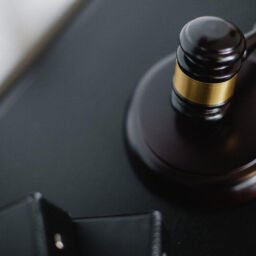INTRODUCTION
Media is one of the most essential weapons to ensure democracy. It is necessary to expose the truth in front of the mass people. In many cases, people love to rely on the attractive headlines of the news media. The media brings the latest news of the country before us. But is it right to believe in all the news coverings made by them? This matter has become the talk of the country in recent years. It is normal to get influenced by the media coverage regarding a particular issue. But in sensitive cases, sometimes the media jeopardizes the judicial proceedings. It brings the matter in front of the people in their ways. Lack of proper research is seen in some situations. But, the mass people get motivated by that news and start to judge the accused or victim. In this way, media can negatively affect people’s sentiments. This situation might also be influential over the judgment.
MEDIA TRIAL
Media trial refers to the impact of television, newspapers, or other news portals’ coverage on someone’s reputation by creating a widespread perception of innocence or guilt before or after the verdict given by the court.[1] This term has become popular during the late 20th century and the early 21st century. The impact of media on the judiciary system has been noticed remarkably in recent times. With the rapid increase of online news portals, this situation worsens day by day. Besides, media takes different social networking sites like Facebook, Twitter, etc., as their spreading medium. So, those news are reaching a large number of people in a short time. And getting attracted by the witty headlines, people judge the accused or the victims even before knowing the actual incident! It is a serious infringement of the rights of an accused as well as the victims’ privacy. In some cases, the media makes news on a pending case. They bring some sensitive issues before people regarding that case. And being desperately motivated on those particular matters, people get emotional and create pressure upon the judiciary. However, most people don’t have the proper idea about any criminal judicial proceeding and evidential issues. Still, they start judging the case without evaluating the actual incidents and bindings of the court. The ignorance of the news reporters in choosing correct words is another important reason for the creation of an unstable situation.
FREEDOM OF PRESS V FAIR TRIAL
The constitution of Bangladesh ensures several rights for its people. Freedom of the press and the right to get a fair trial are two remarkable rights. Both of these rights are very important to ensure democracy in our country. But in some cases, these rights become confiscatory. Because of exercising the uncontrolled freedom of the press, the right to get a fair trial may be violated. Article 35(3) of our constitution states that every person shall be treated as innocent until proven guilty.[2] This right is a concrete one as protected by the constitution. That means every accused person has a right to be appropriately treated before their conviction. Again, an accused person is entitled to get a speedy and fair trial. When the court decides a case after examining all evidence produced by the parties without any external influence, the judgment can be impartial. But in the case of a media trial, severe pressure lies on the court to satisfy the sentiment of mass people. This situation might deprive an accused of getting justice. In Article 39, the freedom of the press is guaranteed. This right is vital to express the actual situation of a country and prevent the Government’s arbitrariness. But, the right to press must not be uncontrolled. In our constitution, this right is restricted on several grounds[3]–
- The security of the state
- Friendly relation with a foreign state
- Public order
- Decency or morality
- Preventing contempt of court, defamation, incitement of the office.
But, appropriate supervision over the news published by media has not been made. So, the publishers can create content and modify any case according to their will to attract more audiences. They want to increase their publicity at any cost. That’s why they use attractive headlines and stories which might not express the actual situation. It creates an uncontrolled situation among the people. It also hampers the right of an accused to be treated as innocent before being proved guilty. Moreover, if that person is found innocent after the final verdict, it becomes hard to cope with society outside the jail. In this situation, controversy is created in the implementation of these two rights. Any misleading information spread by the media is severely harmful to society. Especially in sensitive cases like rape or murder, the role of the media should be more precise. Otherwise, the impartiality of judgment is likely to be dishonored.
RECENT INSTANCES OF MEDIA TRIAL IN BANGLADESH
Media has a wide range of influential power over the people. A simple matter can be over-emphasized by a news portal and spread negativity. In criminal cases, it is the burden of the prosecution to prove the case undoubtedly. If there is no sufficient evidence against the accused, he might not be proved guilty. Some specific procedures have to be followed by the court in a trial. Only circumstantial evidence or digital footage be taken as substantial proof in a trial. No statement given by the accused in police custody is regarded as evidence before the court.[4] A confession can only be taken as proof when recorded before the Magistrate under So, the court declares any verdict against that person only when his guilt is undoubtedly proved according to the law. However, media trial sometimes creates unrealistic expectations among the public that they cannot accept the judgment if it contradicts their demand.
Recently, the judgment of the double rape case in Raintree Hotel (2017) has been declared. Here, the five accused persons got acquitted. The court observed lack of circumstantial evidence was noticed in the trial. Moreover, the court mentioned not to record any rape case after 72 hours as most of the evidence might diminish after that period. But, she didn’t include this statement in the written verdict. However, her judgment was highly criticized in the media as it went against public demand. Again, in the Major Sinha murder case (2020), Cox’s Bazar Court remained careful about preventing media trials. It warned against trial by media to ensure an impartial court proceeding. Because of the sensitivity of this case, there was a risk of interference of media over it. So, the court strictly asked the concerned to avoid revealing the details of the case before the media.[6]
PROCEEDINGS AGAINST UNAUTHORISED NEWS PUBLISHERS
A journalist must maintain professionalism while creating news content. To ensure his professional ethics, he should abide by the [7]. According to this Code, ‘it is the responsibility of the newspapers to publish news relating to the case under trial and to publish the final judgment of the court to reveal the actual picture of issues relating to the trial. But a journalist shall refrain from publishing such comment or opinion as is likely to influence an under-trial case until the final verdict is announced.’[8] If media create any obstacle to justice, it would be taken as contempt of the court.[9] So, it should always be kept in mind that the task of giving a verdict is vested upon the court, not upon the media. But now, there is no Code of Conduct enforceable for the broadcasting media journalists in Bangladesh. To create accountability in this sector, National Broadcasting Policy was approved in 2014. A draft was made to enforce the policy, including punishment for unauthorized broadcasts. However, the draft has not been passed yet.[10] So, unfortunately, no penalty is specified now for a sensitive issue like the media trial in Bangladesh.
FINAL THOUGHTS
Trial by media is a severe issue in ensuring the freedom of the Judiciary. So, it is necessary to create a check and balance over the press as soon as possible. The news published should be scrutinized thoroughly, especially regarding sensitive issues. It would be helpful to reduce the number of misleading information to the people. Also, the journalists must be loyal to their profession. They should create content in order to prove their position as the 4th pillar of democracy. If the media can perform their tasks properly, the contradiction visible between of the Constitution will hopefully be balanced.
Author(s) Name: Faiqua Tahjiba (University of Rajshahi, Bangladesh)
References:
[1] Trial by Media, YourDictionary(2022), <https://www.yourdictionary.com/trial-by-media> Accessed on 16 January 2022
[2] The Constitution of Bangladesh 1972, Art 35(3)
[3] The Constitution of Bangladesh 1972, Art 39
[4] Evidence Act 1872, s(25)
[5] The Code of Criminal Procedure 1898, s 164
[6] “Sinha Murder: Court warns against ‘media trial’” UNB (Cox’s Bazar, 5 September 2020) <https://www.unb.com.bd/category/Bangladesh/sinha-murder-court-warns-against-media-trial/78363> Accessed 16 January 2022
[7] Barrister Ahmed Ehsanul Kabir, ‘Media Trial: Prejudicing the Rights of the Parties in Criminal Cases’ The daily Star (Bangladesh, 6 July 2021) <https://www.thedailystar.net/law-our-rights/law-watch/news/media-trial-prejudicing-the-rights-the-parties-criminal-cases-2123936> Accessed 16 January 2022
[8] The Code of Conducts 1993, r 16
[9] Barrister Ahmed Ehsanul Kabir, ‘Media Trial: Prejudicing the Rights of the Parties in Criminal Cases’ The daily Star (Bangladesh, 6 July 2021) <https://www.thedailystar.net/law-our-rights/law-watch/news/media-trial-prejudicing-the-rights-the-parties-criminal-cases-2123936> Accessed 16 January 2022
[10] Ibid
[11] The Constitution of Bangladesh 1972, Art 35(3), 39
















